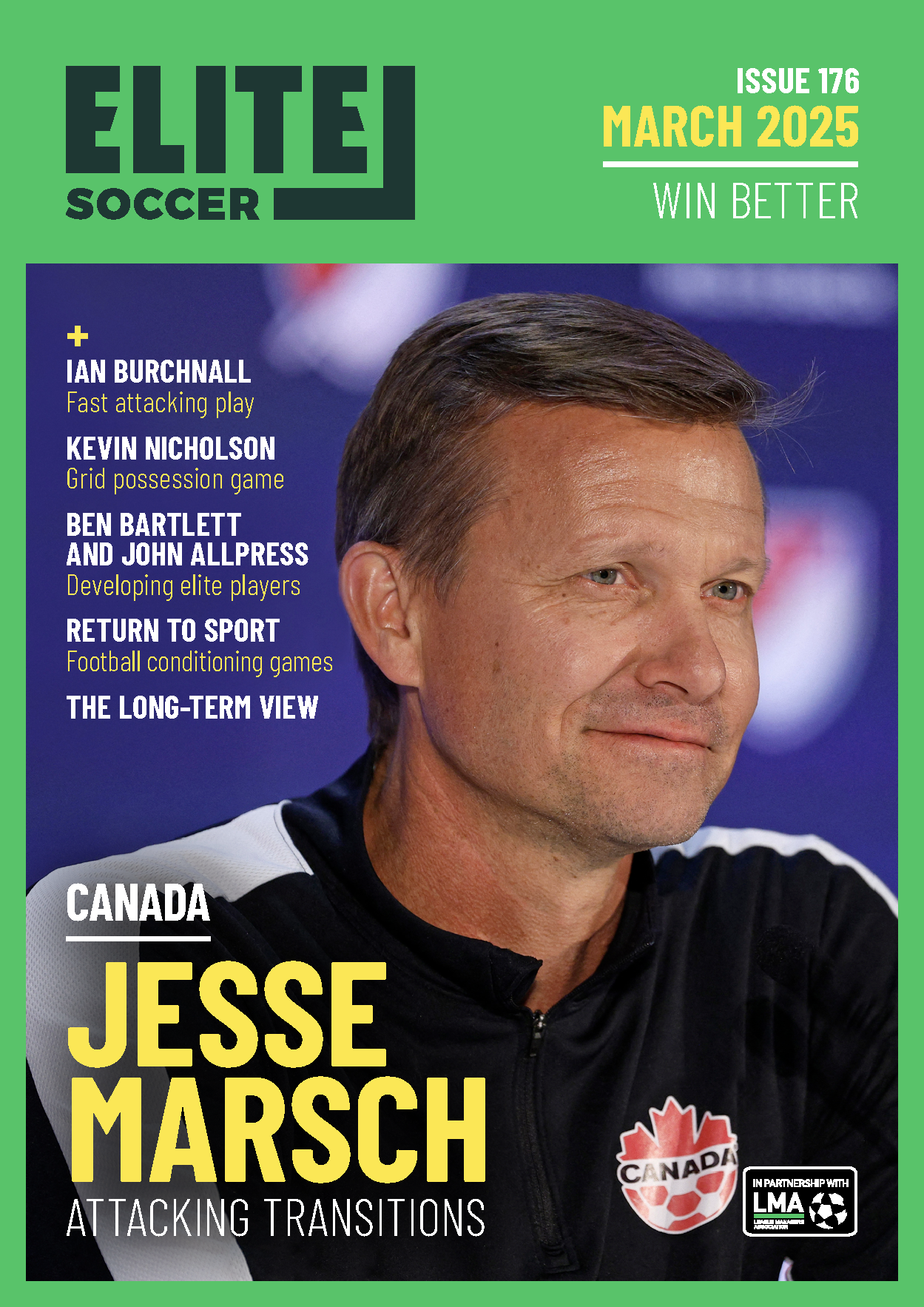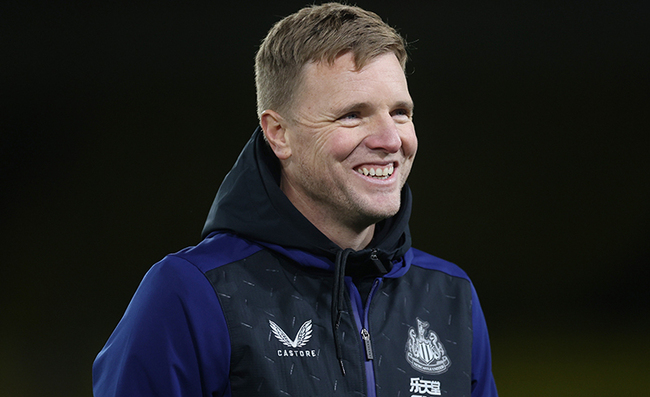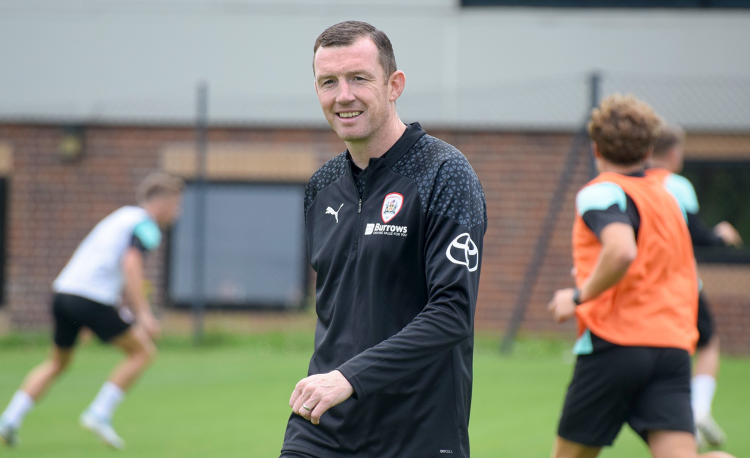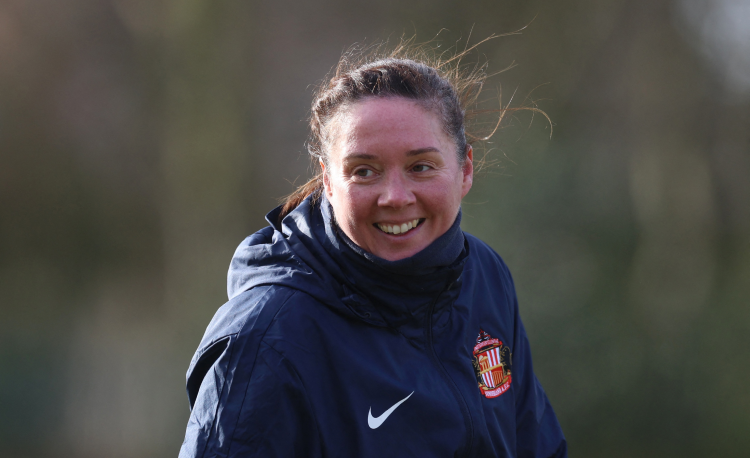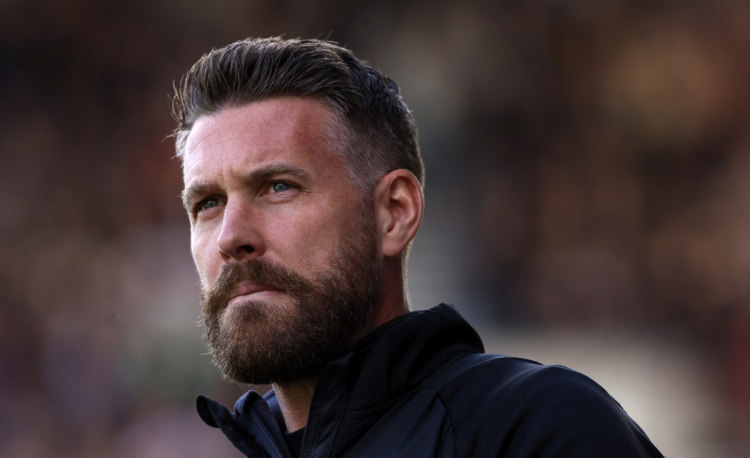The challenge of change
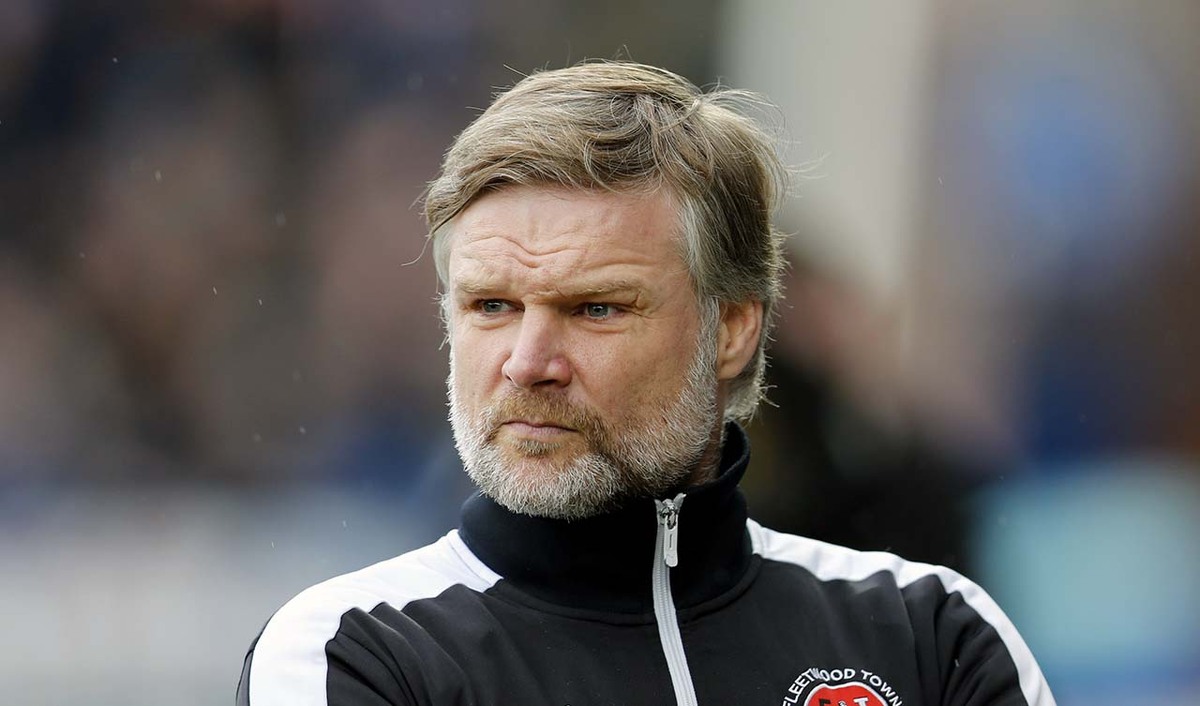
Steven Pressley has earned something of a reputation for helping clubs that are struggling off the pitch regain their form on it. At Falkirk, Coventry and Pafos, Pressley has developed young talent from within and achieved great results against the odds.
Now at Carlisle United, he explains how he has changed and developed throughout his career.
Your first role as a manager came at Falkirk, where you had been a player. How did you find the transition from playing to management?
When the management post became available at Falkirk I applied, but it was Eddie May who got the job and he asked me to be his assistant manager. I was a player at the club at the time, but I’d taken my pro-licence and was already doing some coaching with the national side. Seven months later, May lost his job and I took over.
While it was a great opportunity, I wasn’t prepared. Looking back, I would like to have had three or four years in other roles first to really learn the ropes. I did, however, have a great mentor at Falkirk in Alex Smith. He had a huge influence on my development as a manager and without him it would have been a very difficult period. At the time, the club was in serious financial trouble and there was a real risk of it going into administration.
Despite the financial constraints at Falkirk, you won the Scottish Challenge Cup. How important was that early success for your career?
I think we’re all shaped by our early management experiences. The only way we could deal with the situation at Falkirk was to put all our efforts into developing the talent we had in the academy. As a result, I learned very early on in my career that when you invest your time in young players and give them trust and responsibility, they will very rarely let you down.
We consistently battled at the top of the league and reached cup finals and we did it with the youngest squad in Britain at the time. Winning the Challenge Cup was certainly important for my CV and I think it strengthened my reputation as a developer of young players. Indeed, I was appointed manager of Coventry City on that basis. They, like Falkirk, were facing financial cutbacks and they wanted me to do something similar to what I’d done there, to develop it into a completely sustainable club by focusing on bringing through young talent.
When you have those kinds of challenges away from the pitch, how do you ensure the players aren’t affected?
When I took on the role I had three months before the start of the season, so I made a point of meeting with all the players. I gave them the off-season programme, and explained very clearly what was expected of them and the culture that I was going to implement. I then asked them if they wanted to be part of that and said if the answer was ‘no’ there would be no place for them at the club.
Once the season had started, we didn’t talk much about what was going on off the pitch. We trained properly and we prepared as well as we could, given the circumstances; we couldn’t stay overnight for matches because of financial restrictions, and we had to hold our pre-match talks on the bus. But we were strong in areas like analysis and game planning, body composition and fitness. The focus was on ensuring all of the players were in the best shape they could be and that they knew totally how they needed to play; it was a no-excuses culture.
It helped that I had a very young squad in my first season in charge. Young players tend to be easier to mould and it’s easier to get their buy-in to the culture you’re trying to create.
You were tasked with embedding a new culture at Coventry as well, but didn’t the challenge go a lot further than that?
When I look back at my time at Coventry, I can see that what I was asked to do was way too much for a young manager to take on. There was no director of football in place, so it was down to me to not only change the culture, but effectively restructure the club and the academy. To do that you have to make some very big decisions, not all of which are going to be well received. That isn’t something a manager should be doing.
You have to make big decisions as a manager, but ideally those decisions should only concern the first team, with others falling to the director of football. As a young manager entering the profession, you really need to feel the support of everyone in the club.
You’re one of relatively few British managers to have worked abroad. Did you see the move to Cyprus to manage Pafos as an opportunity or a risk?
To some extent both, but I had spoken with a number of players who had been out there. I also chatted to John Carver at an LMA event and he shared how much he had enjoyed his time in Cyprus and spoke well of the standard of football there.
The UK job market is tough and aggressively competitive. With so many foreign coaches coming over here to work, I think it’s important that British managers are open-minded about seeking opportunities abroad.
I met with the owners of Pafos and learned all about the club, which was struggling at the bottom end of the table at the time, and I saw a great opportunity to discover European football.
How did you find the experience actually managing Pafos?
When I arrived with my coaching staff, the CEO and director of football had just left the club, so we had to manage our way out of a relegation battle with minimal support. However, my first four or five months there were probably my best as a coach and manager, because I had to totally change my style as a leader.
I was managing players from numerous countries and there was no money to pay them for the first three months. That meant I couldn’t use fines as a way to discipline poor behaviour; instead I had to create a culture of respect and team spirit, where everyone felt part of something. I had to deal with so many new situations and it was a brilliant experience. When I went over there, I had a preconceived idea of how I wanted us to play, but I learned that you have to adapt to suit the strengths of your players. I became a much more adaptable and flexible leader.
When I arrived, we were two points away from relegation, but we finished the season 18 points clear of the drop zone and we also reached the semi-final of the Cypriot Cup.
The situation at Carlisle is somewhat different, the side having finished in the top 10 of League Two for the past three seasons. How have you approached it?
Each time I’ve moved to a new club I’ve taken some time to reflect on my previous role and tried to learn from my past experiences. I’ve also adapted my style of play and my approach to management at each club. So, here at Carlisle, while we aren’t yet necessarily playing to my vision, we’re absolutely playing to the strengths of the players. I have made slight adjustments rather than radical changes, because I wanted to maintain some continuity. I’ve really tried to respect the work that the previous staff did before.
The move to Carlisle has been a very different and enjoyable experience. This is the only club in the city, and it has a great catchment area and huge potential. What’s more, the staff are great here, they have a director of football and a board of directors who give the manager the opportunity to be a success. That kind of stability from above is so important. I know that if I can get my teeth into this role I can build a great club here.
Editor's Picks
Attacking transitions
Deep runs in the final third
Using the goalkeeper in build-up play
Intensive boxes drill with goals
Penetrating the final third
Creating and finishing
My philosophy
Pressing initiation
Compact team movement
Coaches' Testimonials

Alan Pardew

Arsène Wenger

Brendan Rodgers

Carlos Carvalhal

José Mourinho

Jürgen Klopp

Pep Guardiola

Roy Hodgson

Sir Alex Ferguson

Steven Gerrard
Coaches' Testimonials

Gerald Kearney, Downtown Las Vegas Soccer Club

Paul Butler, Florida, USA

Rick Shields, Springboro, USA

Tony Green, Pierrefonds Titans, Quebec, Canada
Join the world's leading coaches and managers and discover for yourself one of the best kept secrets in coaching. No other training tool on the planet is written or read by the calibre of names you’ll find in Elite Soccer.
In a recent survey 92% of subscribers said Elite Soccer makes them more confident, 89% said it makes them a more effective coach and 91% said it makes them more inspired.
Get Monthly Inspiration
All the latest techniques and approaches
Since 2010 Elite Soccer has given subscribers exclusive insight into the training ground practices of the world’s best coaches. Published in partnership with the League Managers Association we have unparalleled access to the leading lights in the English leagues, as well as a host of international managers.
Elite Soccer exclusively features sessions written by the coaches themselves. There are no observed sessions and no sessions “in the style of”, just first-hand advice delivered direct to you from the coach.



